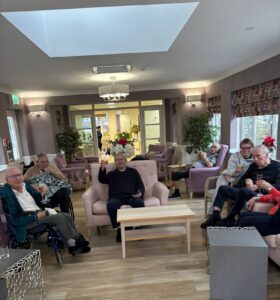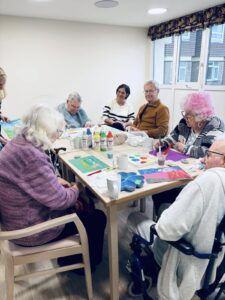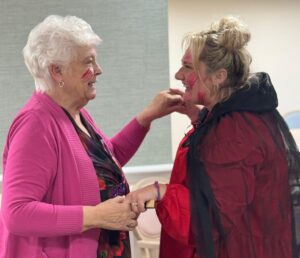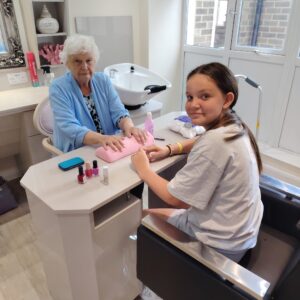Finding the right care for your loved ones or friends is an important decision. This decision requires time, research and planning. Many different care options are available, but there are also common misconceptions about care homes. You may feel overwhelmed by choice or at a loss as to which one is the right fit. One of the most commonly asked questions is what the difference is between a care home and a nursing home. Different types of care homes provide different levels of care and work differently.
At Netto Care, we provide clear guidance to families and high-quality care for those seeking care homes in Essex, including Westcliff-on-Sea, Southend, and Leigh-on-Sea. Whether you are looking for respite care, long-term support, or a luxury care home near you, our experienced team is here to help.
Types of Care Homes
Care homes are of two main types: residential homes and nursing homes. Some care homes offer both residential and nursing care. It’s important to thoroughly research the care homes when you are considering them and the other care options that are available. We share all the relevant information about care homes to help you make a decision that fits your personal needs.
Residential Care Homes
A residential home provides a safe accommodation and supportive environment for older people. People in residential care homes receive help and support with personal care, such as washing, dressing, taking medication, eating, and using the toilet. The older people can enjoy each other’s company through different planned activities and opportunities arranged by the activities/lifestyle leads. Residential homes are the best option for older people seeking to reduce the stress related to their daily health and care.
Nursing Homes
A nursing home also provides social activities and in-home entertainment like residential care homes, but there will always be at least one qualified nurse on a round-the-clock basis. These care homes are designed to help those who may have a complex medical condition (those who need higher levels of care) or severe mental or learning disabilities. It may be for short-term need (after a hospital stay) or sometimes it is a long-term living option. Nursing homes are often tailored to the needs and abilities of the residents. They also consider the nutrition of residents, overall health and well-being with medical and social care.
Netto Care offers both types of care. In some of our homes, residents can move seamlessly from residential care to nursing support as their needs change, without having to move to a different home.
Dual-Registered Care Homes
These care homes offer both residential and nursing care places. So, people can benefit from it if any changes in care needs are necessary. It is common for one who is simply struggling to live alone, even with help from friends, family, or carers, to first move into a care home as a resident. They may feel they would benefit from being able to socialise with peers. They also like to receive a little extra help and support with personal care in their daily lives.
With time, their needs may change from needing a little extra help and comfort to on-site registered nursing professional care during the day and night. Netto Care’s dual-registered homes in Essex are ideal for those whose needs may change over time. You can begin with residential care and transition to nursing care as required — without the stress of relocating.
Care Homes with Dementia Care
These care homes are designed to support people with dementia. So your loved ones and friends with dementia can feel comfortable, safe, and able to enjoy their lives despite the mental (and often physical) challenges. Netto Care is known for providing high-end dementia care in Essex. Our luxury care homes in Westcliff-on-Sea combine comfort, style and personal dignity. From beautifully furnished rooms to gourmet meals and engaging activities, we offer an enriched lifestyle with exceptional.
Who Will Pay for a Care Home?
In most cases, you can either pay for your own care (self-funded) or your local council will offer you financial help. Ask your local council for an assessment before deciding how to pay for a place in a care home. The local council will help you assess all your options.
Common Misconceptions of Care Homes
Although life in a care home is comfortable and easy. You have your own bedroom with a wardrobe to store some personal items. This will make it feel like a home. You can sit, talk with other residents or engage in the activities in the communal areas. Mealtimes are often planned for you and tailored to your nutritional needs. But, many misconception that care homes are spread like they are old-fashioned and lonely. Here are the four common myths about care homes.
- Care homes are lonely places.
Most people think people living in a care home are lonely and isolated. But people who receive care and support at care homes can enjoy the company of their fellows and carers. Residents will benefit from the sense of community. They can participate and have fun in the variety of events and activities offered within care homes. It will help to reduce stress and loneliness, bringing them those unbeatable moments of joy.
- They are clinical and dirty environments.
Another common myth is that a care home is like a hospital or a clinic where only the health of the resident is the main concern. Well, this is not true; care homes work hard to ensure residents feel at home under care. They provide tasty, homemade meals that also meet the nutritional needs of residents and plenty of activities to bring fun into their lives. The other thing most people are concerned about is the cleanliness of care homes, as it is said that care homes have dirty environments. Care homes have a housekeeping team that keeps the place neat and clean to maintain the highest standards of hygiene.
- Are the care team trained for all care needs?
The care team are trained to meet the individual needs of each resident. Training is often tailored to the specific needs of the residents and the types of care received. For example, a care team working with people with dementia will receive specific training in dementia care, but a team supporting people with physical disabilities may focus on mobility and assistive devices.
- Loved ones are not allowed to visit.
No, this is not true; all care homes allow the family and friends to visit their loved ones. They understand the importance of socialising and meeting family and friends. It is not only fantastic for the mental well-being of residents, but also for team members. A buzzing, thriving community within care homes is a massive reward for residents. They will shine when a loved one walks through the door. If residents who cannot see friends and family as much as they would like, the care home will help them with photos, videos, and voice messages. Care home residents will not only benefit from the care and support which they require. But they will also enjoy companionship and a full, enriched life with dignity and respect.
At Netto Care, we understand how much trust this decision requires. That is why our homes are designed around people — not processes. Whether you need residential care, dementia care, or are searching for a luxury care home near you, we are here to walk with you through every step.
Visit www.nettocare.co.uk to find out more or arrange a visit. Our team is here to answer your questions, listen to your concerns, and help you explore the right care options in Essex.






